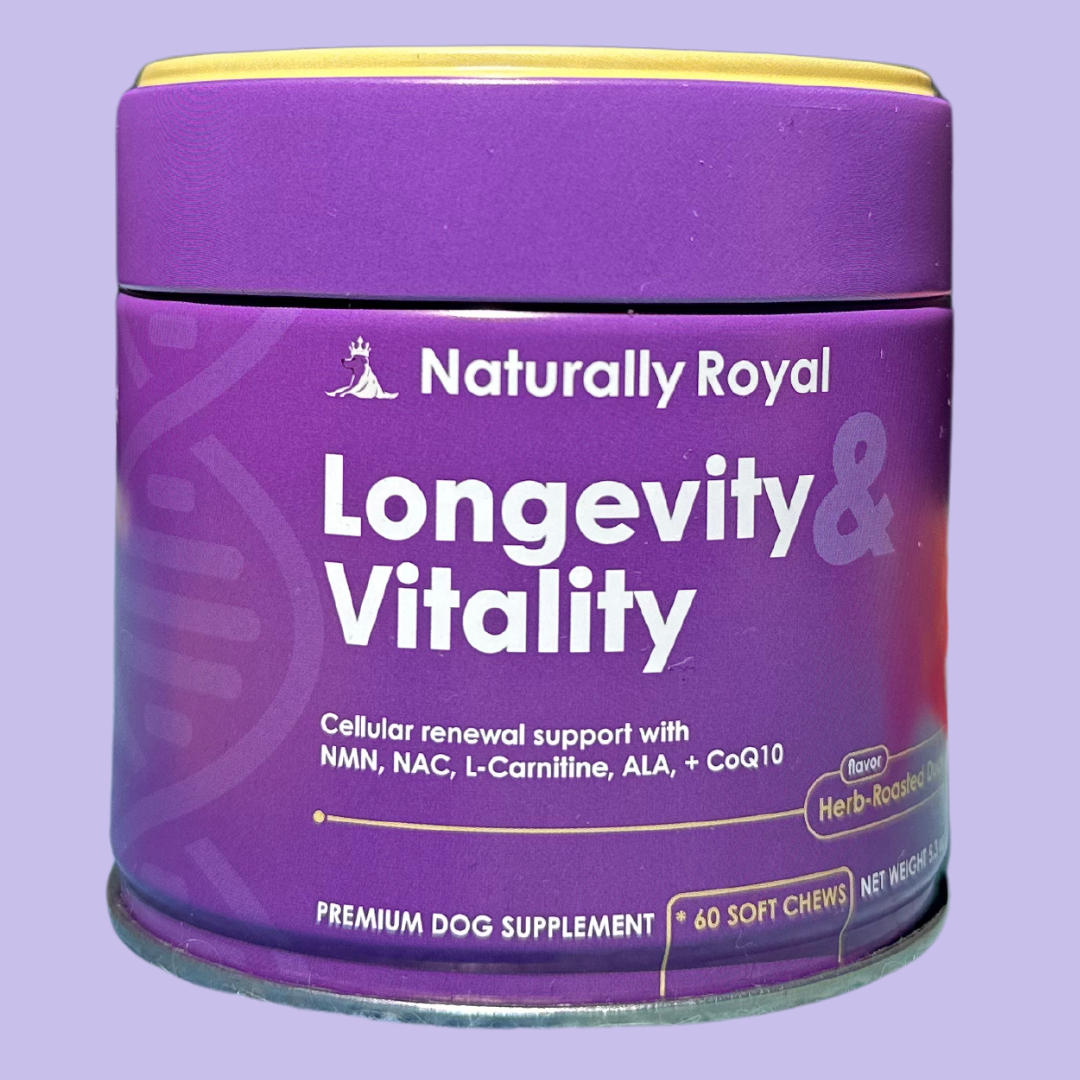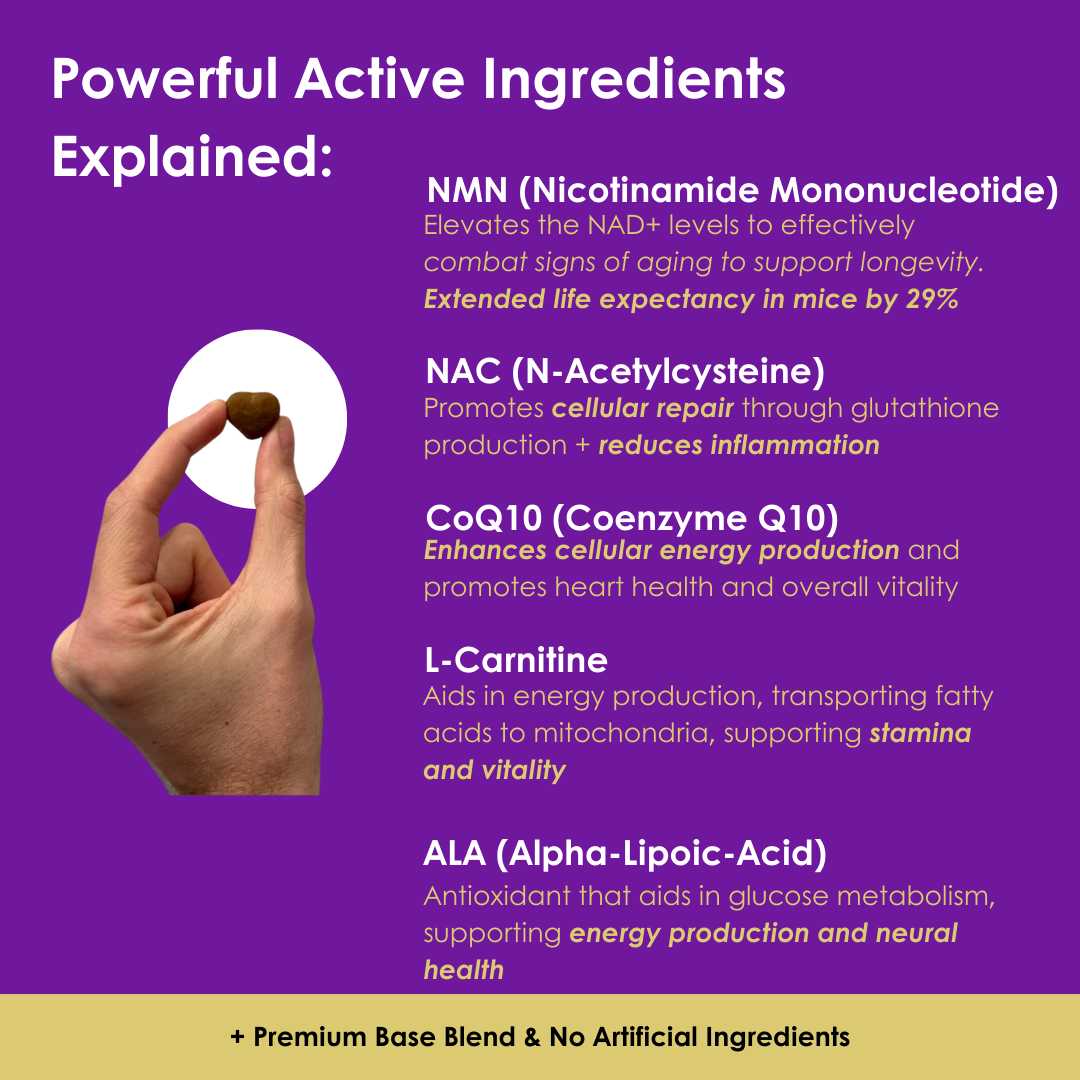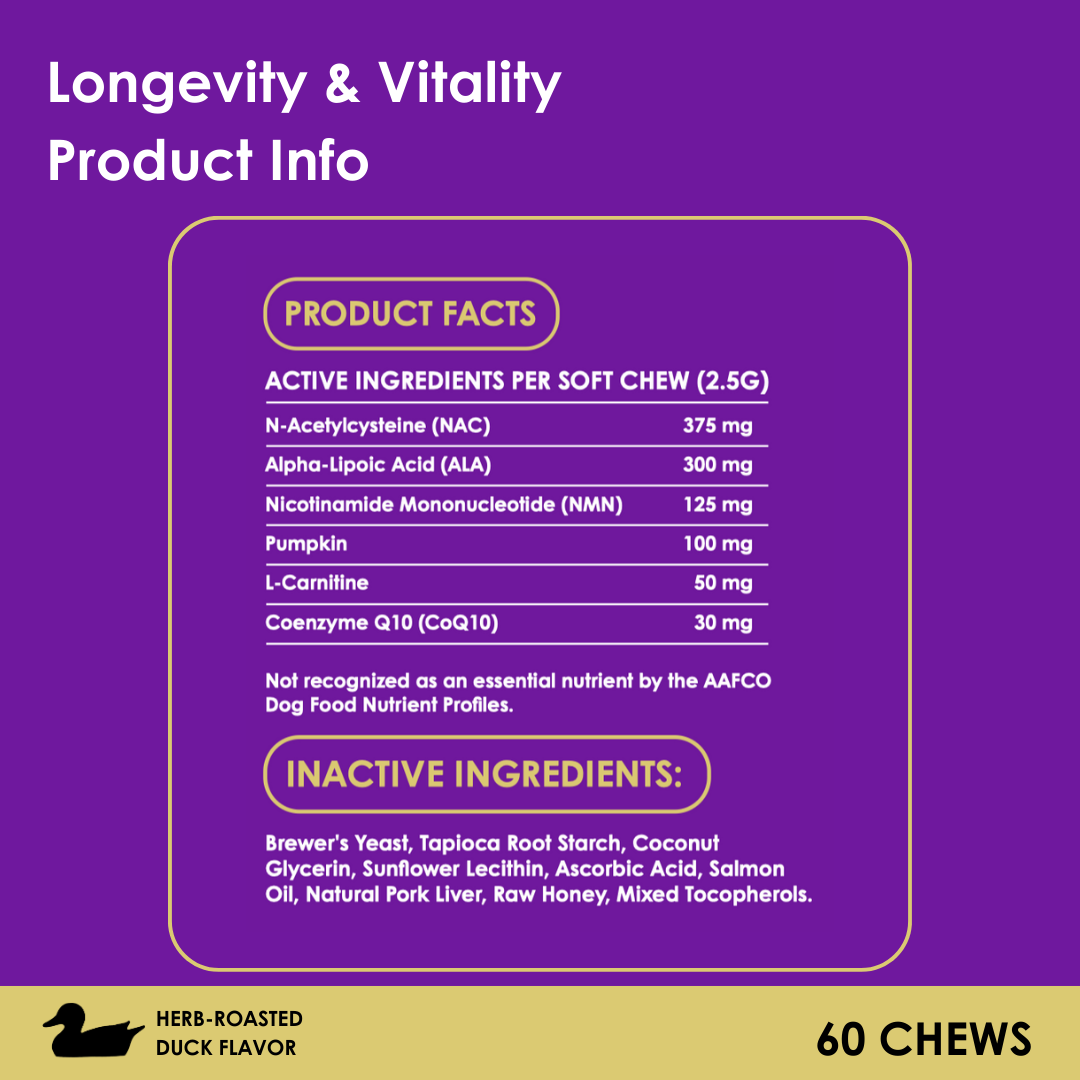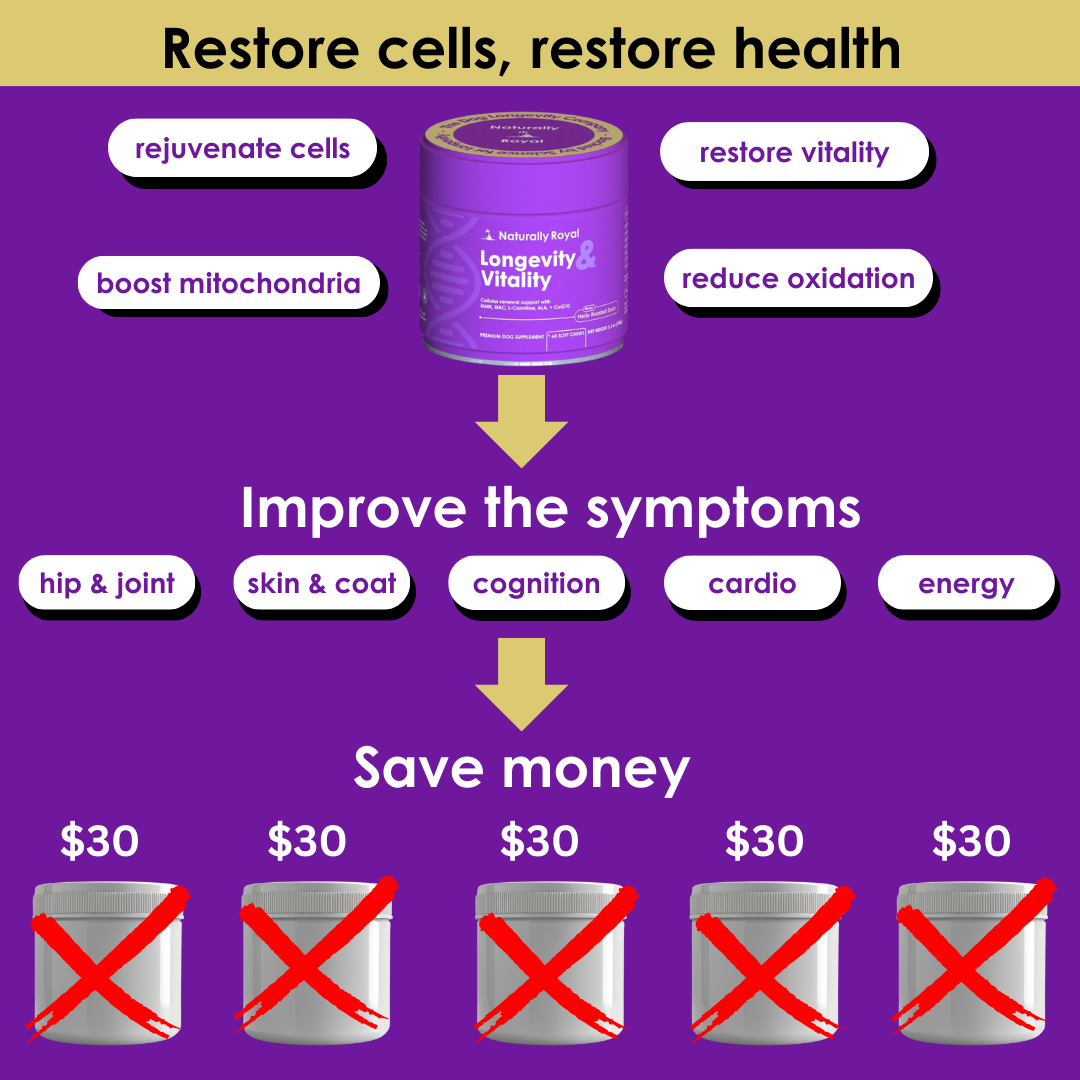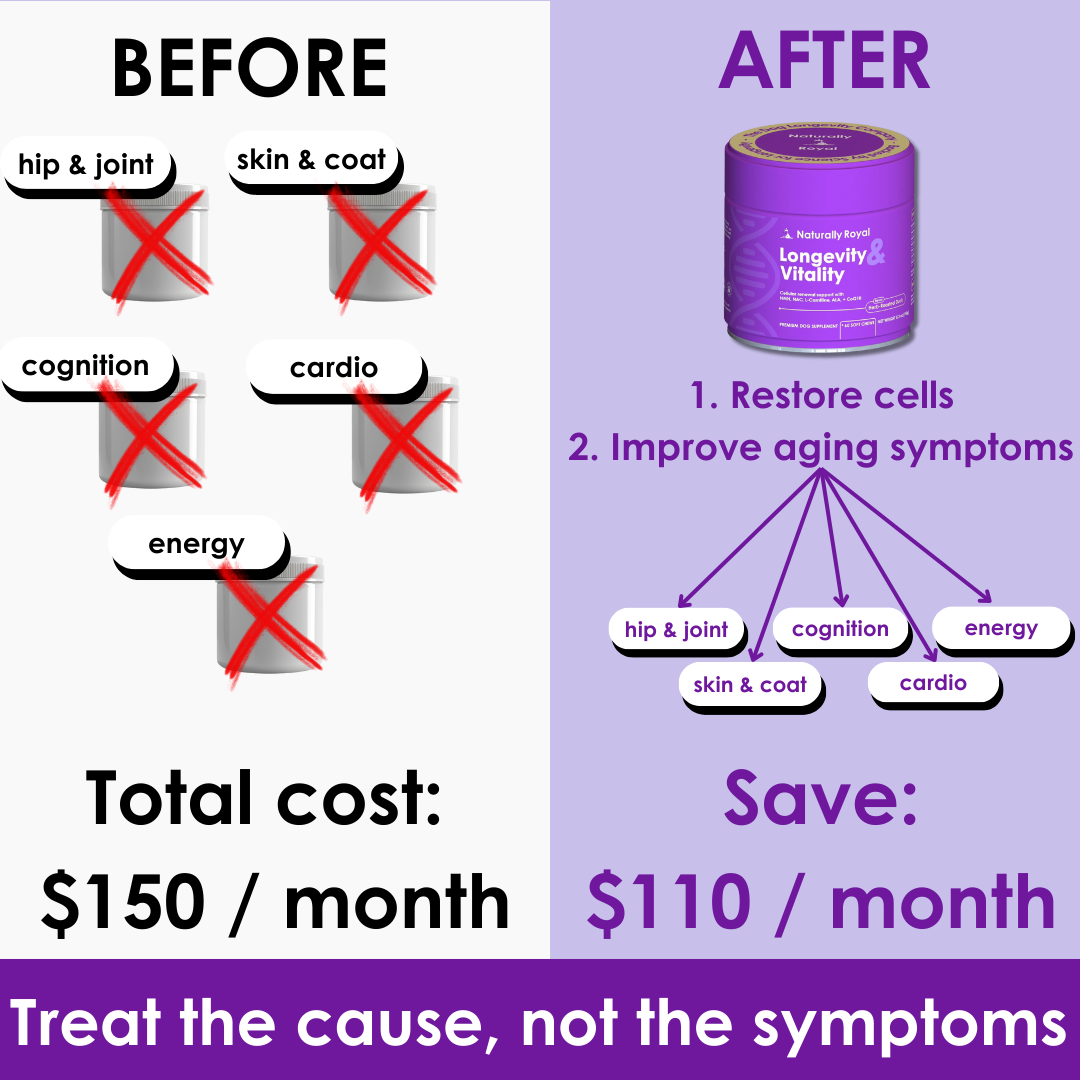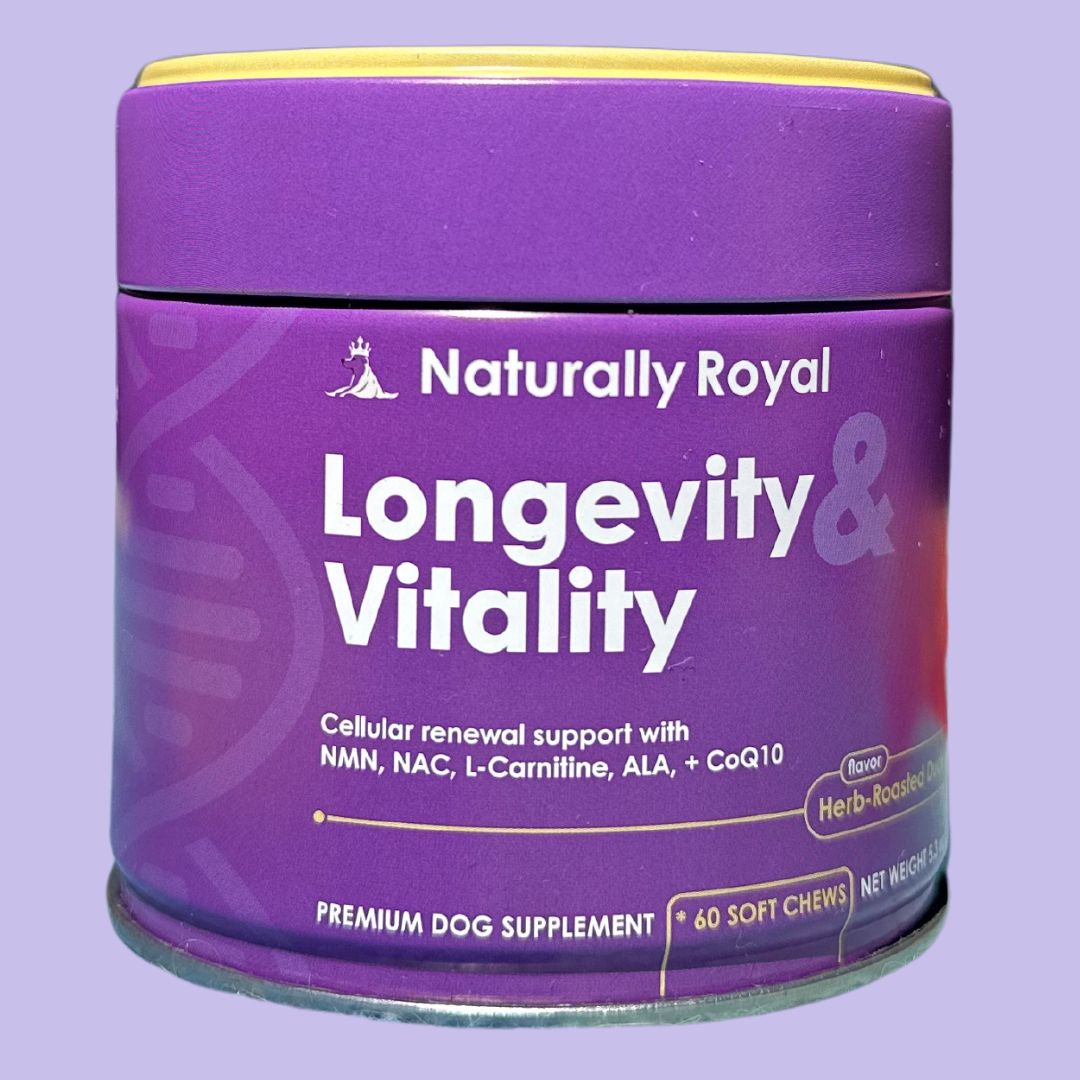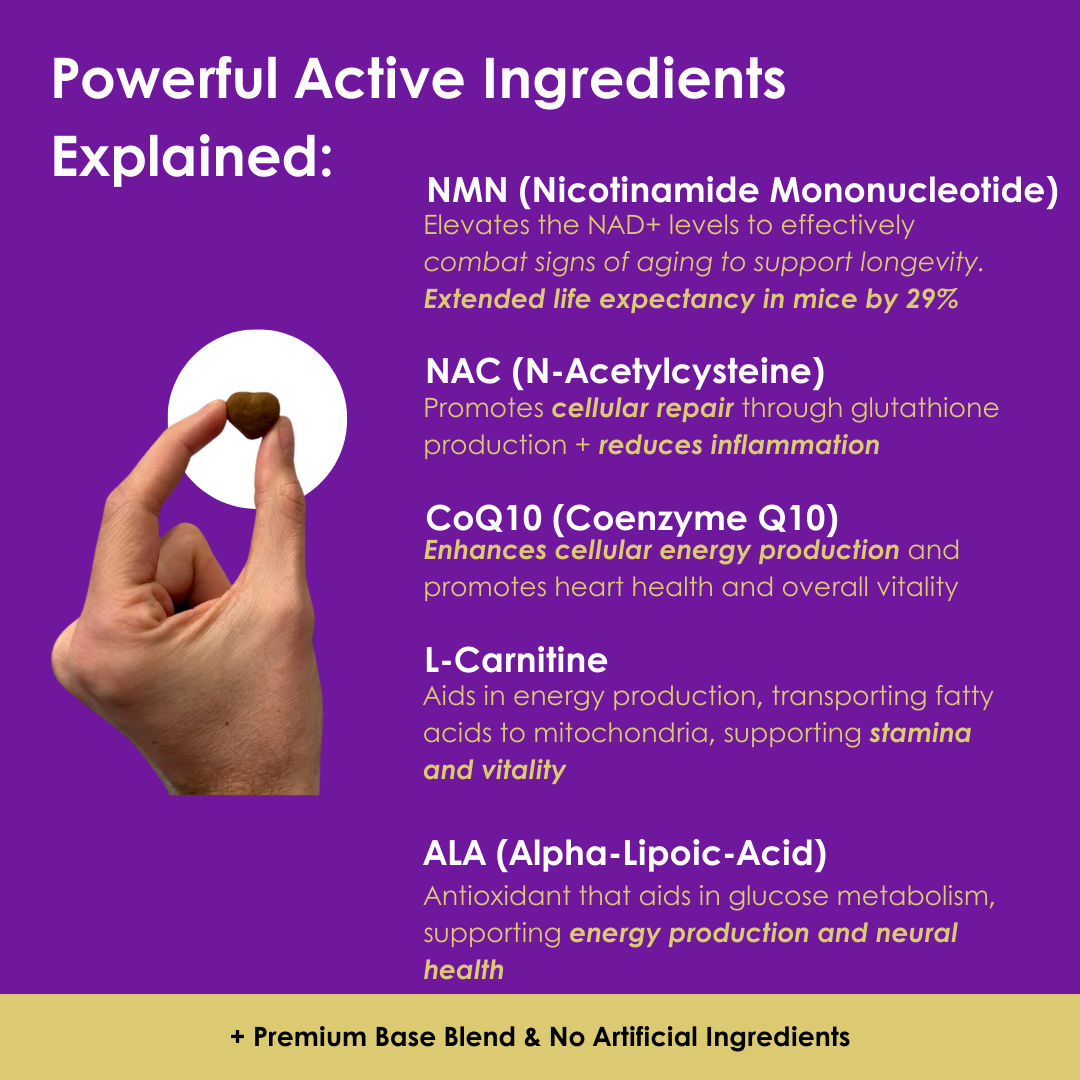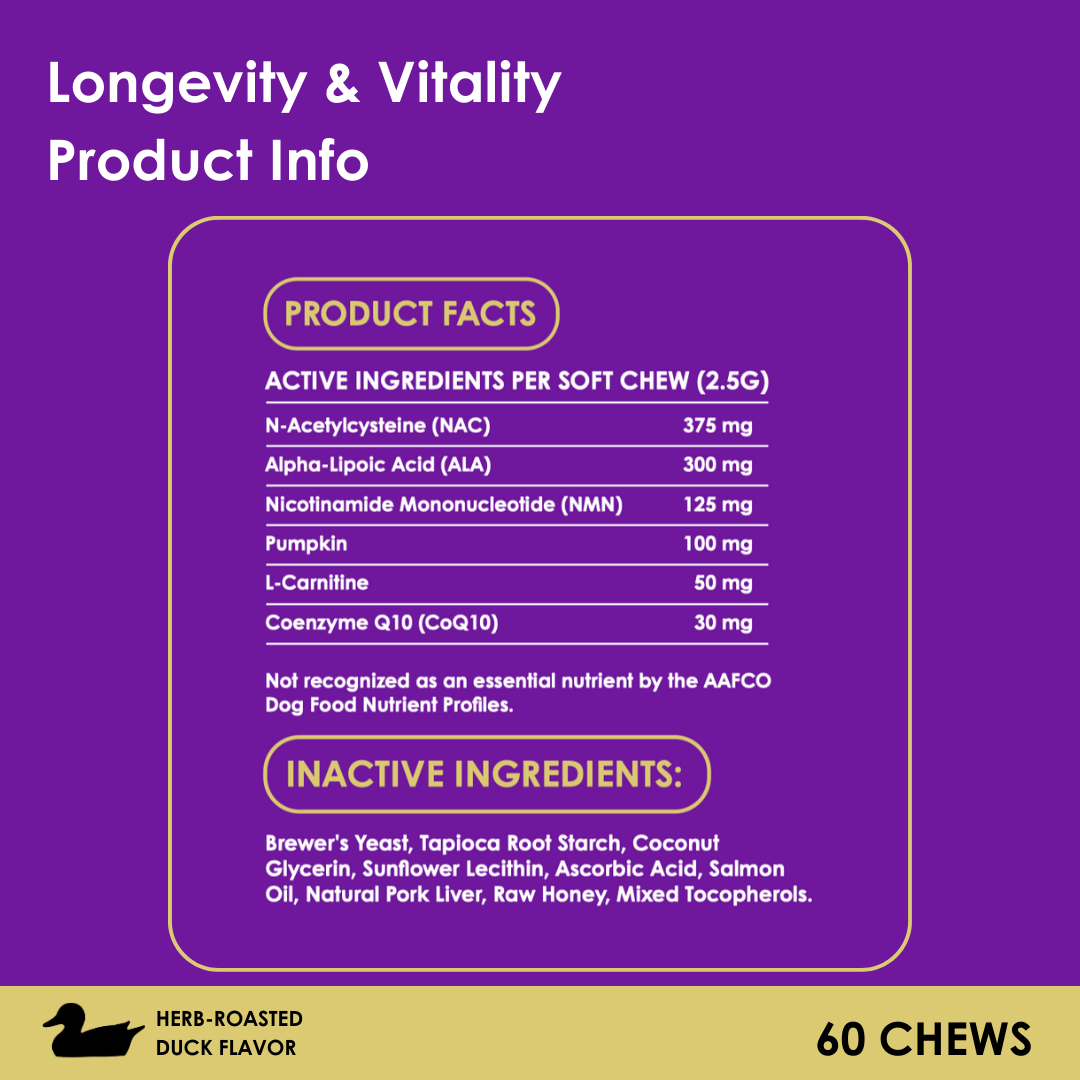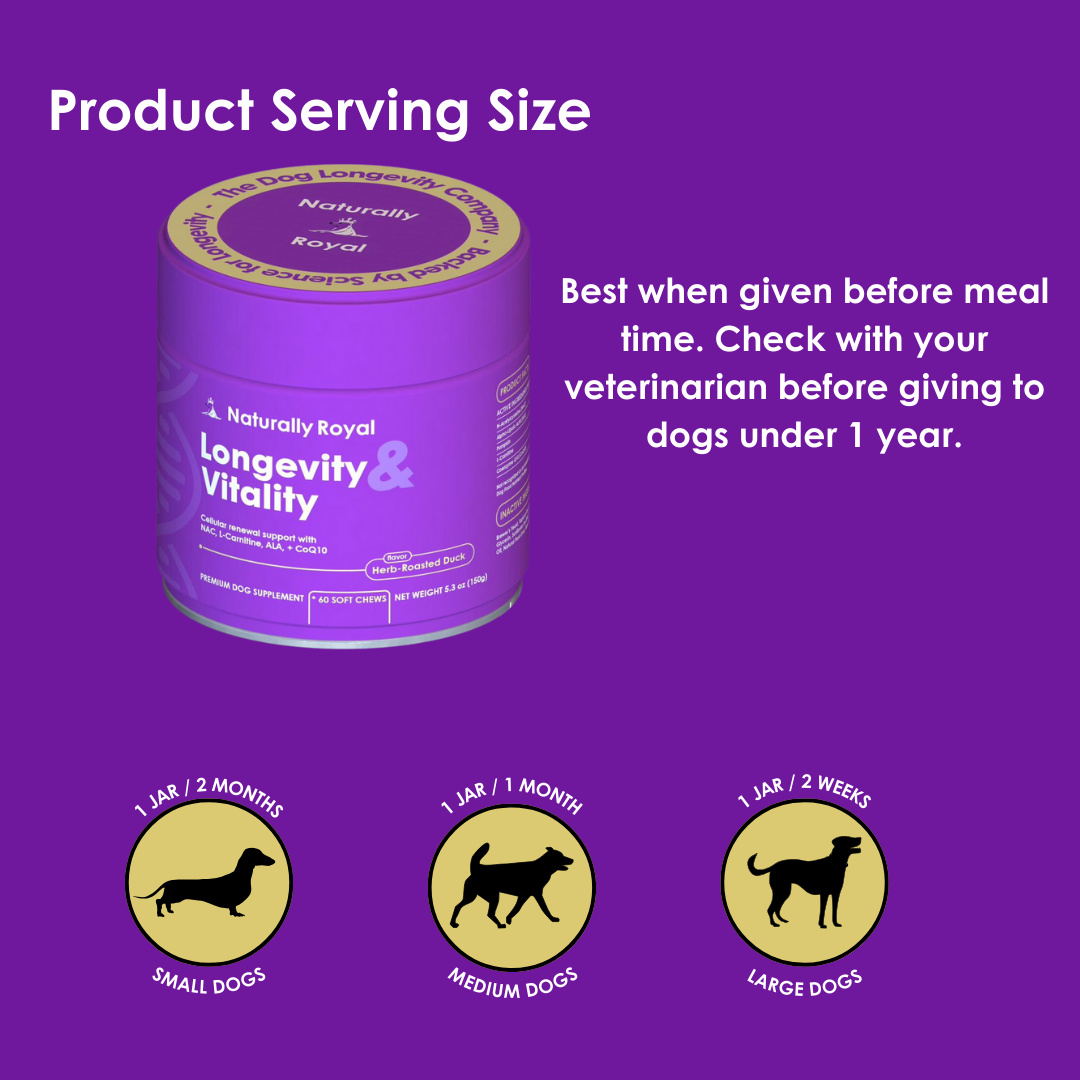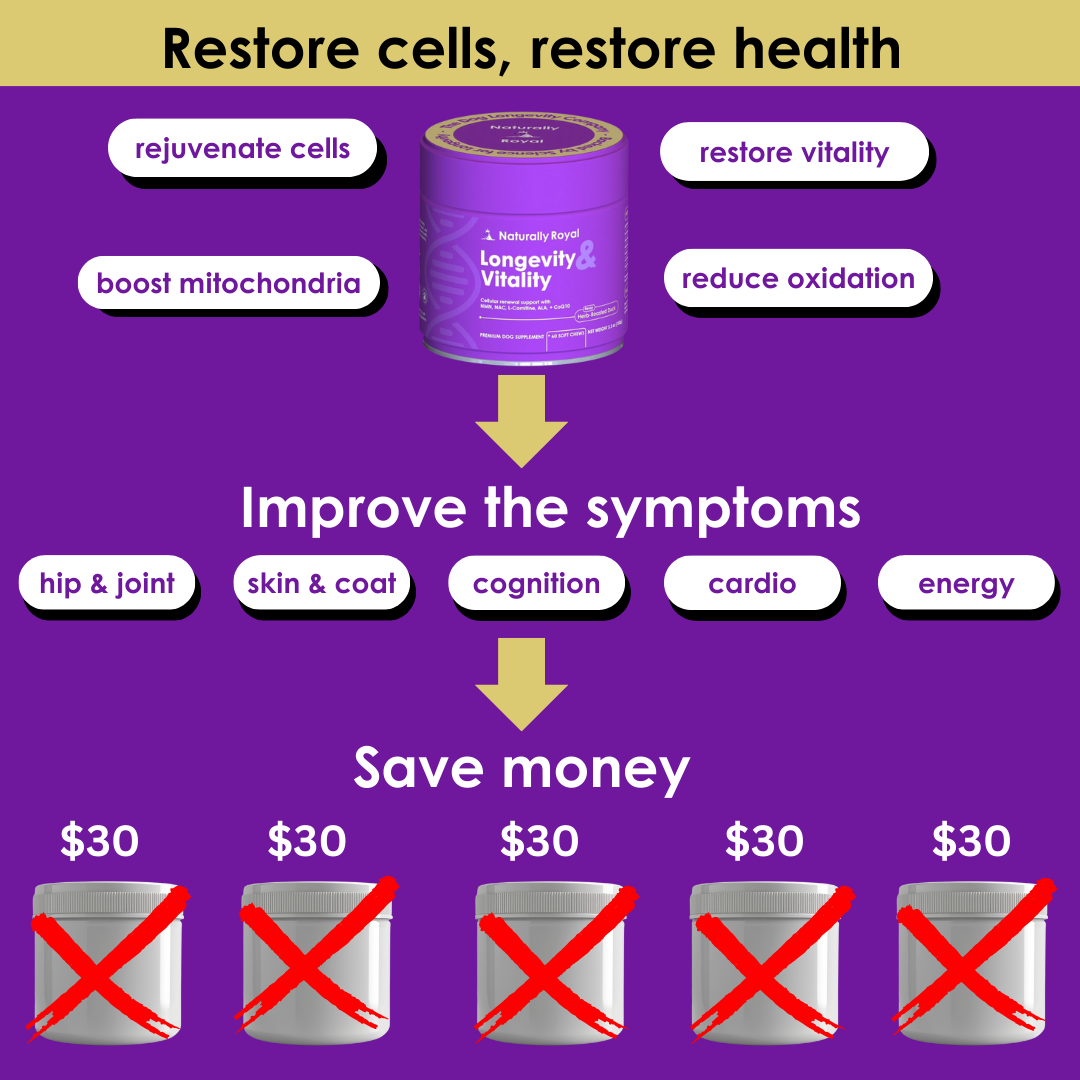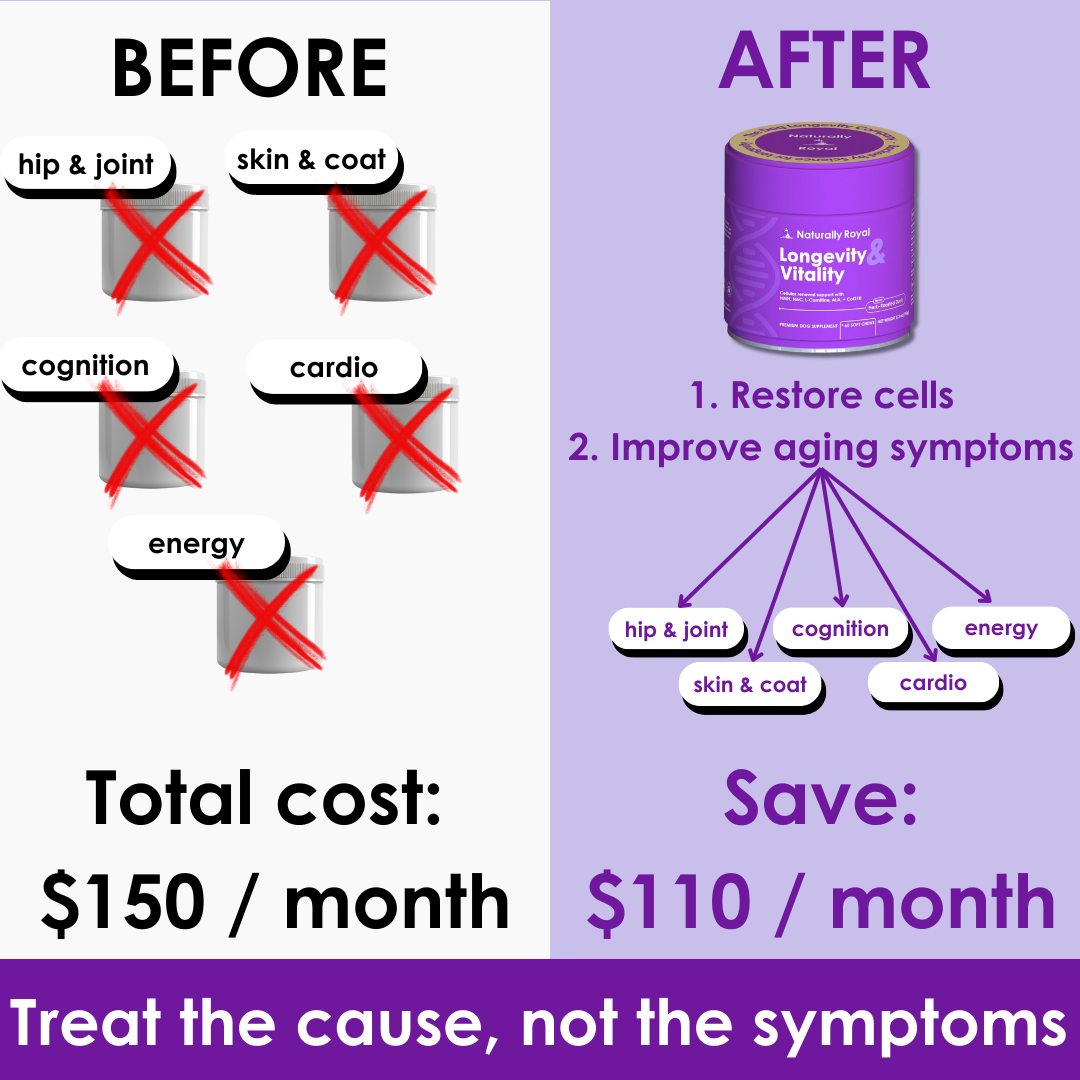Inflammation and How to Reduce it
Inflammation is a natural response by the body’s immune system to fight off infections and heal injuries. However, chronic inflammation can lead to various health problems, significantly impacting a dog’s health and longevity. Let's explore what inflammation does to the body, how it affects longevity, and effective ways to reduce it:
What is Inflammation?
Inflammation is the body’s defense mechanism against harmful stimuli, such as pathogens, damaged cells, or irritants. There are two types of inflammation:
- Acute Inflammation: A short-term response that helps heal wounds and fight infections. It typically resolves after the body eliminates the threat.
- Chronic Inflammation: A long-term response that can occur when the body continues to react to a persistent irritant. This type of inflammation can cause ongoing damage to tissues and organs.
How Inflammation Affects the Body: Chronic inflammation can lead to several health issues, including:
- Joint Problems: Conditions like arthritis result from chronic inflammation in the joints, causing pain and reduced mobility.
- Heart Disease: Persistent inflammation can damage blood vessels and the heart, increasing the risk of cardiovascular diseases.
- Digestive Disorders: Chronic inflammation can affect the digestive system, leading to conditions like inflammatory bowel disease (IBD).
- Cancer: Inflammation can promote the growth and spread of cancer cells by creating an environment that supports tumor development.
Impact on Longevity:
Chronic inflammation can shorten a dog’s lifespan by contributing to various chronic diseases and conditions that affect overall health and well-being. Managing inflammation effectively is crucial for enhancing a dog’s quality of life and longevity.
Ways to Reduce Inflammation:
-
Diet:
- Anti-Inflammatory Foods: Include foods rich in omega-3 fatty acids (like fish oil) and antioxidants (like blueberries and leafy greens) in your dog’s diet.
- Avoid Pro-Inflammatory Foods: Reduce the intake of foods high in sugar and unhealthy fats, which can promote inflammation.
-
Regular Exercise:
- Regular physical activity helps maintain a healthy weight, reduces stress, and keeps joints flexible, all of which help manage inflammation.
-
Supplements:
- Omega-3 Fatty Acids: Supplements like fish oil can help reduce inflammation and support joint health.
- Glucosamine and Chondroitin: These supplements support joint health and reduce inflammation in dogs with arthritis.
-
Medication:
- In some cases, veterinarians may prescribe anti-inflammatory medications to help manage chronic inflammation. Always follow your vet's guidance and prescriptions.
-
Environmental Factors:
- Reduce exposure to environmental stressors and allergens that can trigger inflammatory responses. Provide a clean and stress-free environment for your dog.
-
Regular Veterinary Check-Ups:
- Regular check-ups can help detect early signs of chronic inflammation and other health issues. Early intervention is key to managing inflammation and maintaining your dog’s health.
Managing inflammation is essential for promoting a long and healthy life for your dog. By incorporating anti-inflammatory foods, maintaining regular exercise, using supplements, following veterinary advice, and creating a supportive environment, you can significantly reduce your dog’s inflammation and enhance their longevity. Always consult with your veterinarian to develop a comprehensive plan tailored to your dog’s specific needs.


